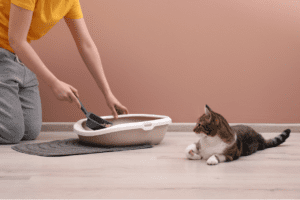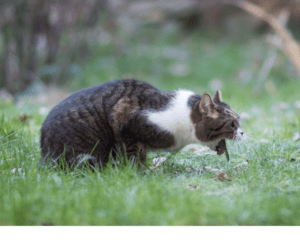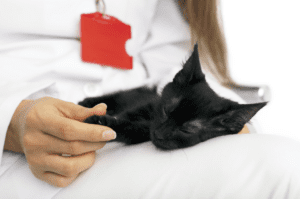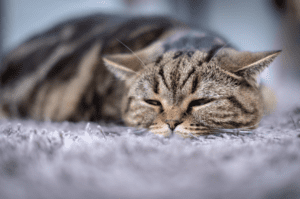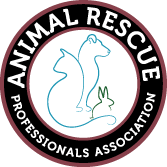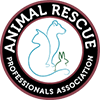How exciting it is to get a new puppy, right? As a first time fur parent, expect that there will be plenty of time for snuggles! Unfortunately, it’s not all about rainbows and butterflies when it comes to having a new dog in your life.
There will be constant worries about the possible diseases that can affect your dog’s health. Well, one of these deadliest puppy diseases is the canine parvovirus or also known as parvo.
Fortunately, this article will provide main ideas about parvovirus and to answer whether a dog can live a normal life after a parvo dog illness.
What Is Parvo Dog Illness?
Parvo dog illness is a highly contagious virus that can affect all dogs, but unvaccinated dogs and four-month-old puppies are the most at risk. This virus can affect dogs’ gastrointestinal tracts.
If a dog catches parvo, it may spread by dog-to-dog contact and contaminated feces. Parvovirus can contaminate food and water bowls, leashes, collars, and kennels.
This virus is resistant to heat, humidity, and coldness. It can thrive in harsh environments for extended periods.
Even small amounts of feces from an infected dog can harbor the virus and spread diseases to other dogs.
What Causes Parvovirus Infection?
Canine parvovirus type 2 (CPV) is the virus that causes parvovirus infection. It first emerged in Europe around 1976, and by 1978 the virus had grown unchecked, causing an epidemic of myocarditis and gastroenteritis.
This virus is not limited to dogs as it’s capable of spreading infections to wild canines such as wolves and coyotes, and other wild animals like raccoons and skunks. CPV is related to the feline panleukopenia virus (FPV), a virus that infects cats and minks.
CPV arose from the result of 2-3 genetic mutations in FPV that allowed it to extend its host range to infect dogs. Dogs are susceptible to parvovirus, so always remember to avoid bringing your pet to public places where there is a risk for viruses until after their vaccinations are complete.
Who Is Susceptible To Parvovirus?
Six weeks to six-month-old puppies are the most susceptible to parvovirus. Puppies can be vaccinated at approximately 6-12 weeks of age.
They are susceptible to the disease until they receive all the shots in their vaccination series. Pet owners should remember to take extra precautions to prevent their puppies from acquiring the virus.
At 14 and 16 weeks of age, a puppy needs to receive a parvo vaccine for dogs to develop enough protection.
How Is Parvovirus Tested?
- Veterinarians conduct testing using a fecal sample or a rectal swab. The result can come out within 10 minutes.
- It’s possible to have a false-positive result if the dog has newly been vaccinated, so it’s essential to give that information to the veterinarian so that he can correctly assess the dog. Like any other test, a false-negative result is also possible.
- A veterinarian may recommend a Complete Blood Count (CBC) to check the number of red blood cells, white blood cells, and platelets in the blood. He’ll check the CBC every day to see if there is an improvement.
- A chemistry profile will evaluate liver function, kidney function, and electrolytes to identify the proper treatment for the disease. X-rays and ultrasounds will help in evaluating other possible causes of vomiting.
What Is The Treatment For Parvo Dog Illness?

Treatment for parvovirus includes controlling nausea and vomiting, keeping your pet hydrated, controlling abdominal pain, and preventing secondary bacterial infections. Hospitalization may be necessary so that veterinarians can apply fluids and medications through injections.
Indicated below are the available parvo outpatient treatments:
- Plasma transfusions and/or blood transfusions
- Intravenous fluids (a drip) for preventing dehydration and electrolyte abnormalities
- Plasma transfusions and/or blood transfusions
- Antibiotics for preventing secondary infections
- Tube feeding
A Dog’s Life After Parvo
Can a dog live a normal life after parvo? If your dog does recover, it can go back to a normal life.
After hospital discharge, the dog will shed the virus for 3-4 weeks. Pet owners should keep their pets isolated for 4-6 weeks at home.
Unfortunately, your pets can’t avoid parvovirus exposure. Pet owners must consider keeping their pets away from areas where there is a high tendency for infection, such as the dog park.
Keeping pets away from areas where parvovirus is widespread can reduce the pets’ risk of contracting the disease. Vaccines are very efficient, which explains why it’s rare to see vaccinated dogs infected with parvovirus.
Conclusion
Can a dog live a normal life after parvo? This article stated that your dog can get rid of parvo dog illness in 3-4 weeks after hospital discharge. This is great news for those who are constantly worried about their fur babies.
If you want to make a change, join Doobert and be a volunteer today! This could also be your chance to save a precious life through adoption, so don’t hesitate to contact them. The Doobert team is always ready to address your concerns.
